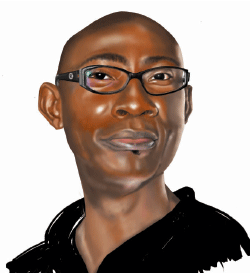The Economic and Financial Crimes Commission (EFCC) was set up by former President Olusegun Obasanjo to fight economic crimes, including money laundering.
At inception in 2004, it had all the trappings of an organ that would check the public and private excesses of men and women who used their positions to undermine the country, laying the foundation for deep-rooted social and political ills now hunting Nigerians.
I recall with nostalgia the vibrancy with which the EFCC under its maiden Chairman, Nuhu Ribadu, and his officials went about their duties, which gave the hope that corruption is possible to deal with.
But that commitment did not last. Ribadu derailed and made himself a willing tool in the hands of Obassanjo to pursue political enemies against his second term and even third term ambition. That has become the lot of the EFCC to date.
The EFCC is in the news once more. Its officials appear to be having fun inviting all manner of people to justify their pay.
They want to be seeing to be working hard, being unsure of what will happen to the EFCC when President Muhammadu Buhari takes a critical look at it. There is a call for it to be merged with the Independent Corrupt Practices and Other Related Offences Commission (ICPC).
The EFCC has recently invited more prominent personalities than it did during the entire period of the Goodluck Jonathan administration.
Some Nigerians are desperately waiting to be invited, as an EFCC invite is like a party invitation. That is how serious or unserious the public now takes the body.
One of the persons invited last week was Toyin, wife of Senate President, Bukola Saraki. The EFCC wants to question her for alleged shady contracts during her husband’s tenure as Kwara State Governor between 2003 and 2011.
Also invited was Zainab Dakingari, daughter of the late former President Umaru Yar’Adua, who is also the wife of former Kebbi State Governor, Saidu Dakingari.
The list of the latest EFCC invitees is long and many more are under its watch.
A few weeks ago, we were treated with the EFCC’s comic and showmanship when former Governors Ikedi Ohakim (Imo), Sule Lamido (Jigawa), Murtala Nyako (Adamawa) were arraigned in court over money laundering and related matters. Before then, former Governors Timipre Silva (Bayelsa) and Chimaroke Nnamani (Enugu), and former Aviation Minister, Femi Fani-Kayode, made appearances in court, arraigned by the EFCC.
There was also the arraignment of former Head of Service, Steve Oronsaye.
Those waiting to be invited by the EFCC are too many and I doubt if there is any governor in the last dispensation who is not looking forward to it.
Petitions are being contrived to link potential invitees to crime. We hear that EFCC officials instigate and package petitions against “clients” who are invited, questioned, and asked to go after parting with money.
One petition was posted online on Thursday, July 23 by a group demanding he probe of former Secretary to the Government of the Federation (SGF), Anyim Pius Anyim, over the Centenary City project in Abuja.
Jonathan laid the foundation stone of the 12.6-square-kilometre Centenary City in June last year, a private sector-driven project fashioned after the ones in Dubai, Monaco, and Singapore.
Ohanaeze Ndigbo Christian Youths in the Diaspora wants Anyim probed for allegedly acquiring shares by proxy against civil service rules.
The petition was signed by Cosmas Elechi, President General of the group.
It alleges that the records of the Corporate Affairs Commission (CAC) showed that Centenary City is partly owned by Company First Limited, represented by Esther Onoji, and Basic Start Limited, represented by Jennifer Onah, whom Elechi alleged are Anyim’s aides.
He also alleged that other directors of Centenary City do not have a single share in their names.
“The scheme of declaring the Centenary City as a Free Trade Zone is to give waiver to the owner which has been robbing the Nigerian government of revenue,” he wrote.
Elechi alleged that Anyim acquired property in Abuja, including a four-star hotel, against public service rules. He implored Buhari to probe the allegations.
Vendetta is the motive for this king of petition. And Anyim is not alone in this contrived scenario, as there are feelers from Buhari’s quarters that Jonathan and his former aides are up for investigation.
More of such petitions meant to settle political scores and cause the EFCC to go berserk will soon surface.
Nobody would be surprised if the EFCC knocks on the doors of Emmanuel Uduaghan, Godswill Akpabio, Liyel Imoke, Diezani Alison-Madueke, Ngozi Okonjo-Iweala, Abba Moro, Ibrahim Shema, Isa Yuguda, Theodore Orji, et al.
That Saraki’s wife was invited four years after the husband left office is difficult to comprehend.
Though Toyin is not above the law, and has agreed to meet EFCC officials on July 28, something is fishy about her invitation which coincides with the battle the husband is doing over the Senate leadership.
The only thing predictable about the strategy of the EFCC against corruption is witch-hunt and vendetta.
I agree with some senators loyal to Saraki, who, on Thursday, July 23, described the invitation to his wife, as “very curious” and politically motivated.
“Though, we do not want to make any hasty conclusion, we are surprised that about five years after the Sarakis left Government House, Ilorin, the EFCC suddenly realised the need to invite the wife.
“We hope this is not part of the plot we have heard about aimed at wrestling [Saraki] down with different tactics ….
“The EFCC definitely should perform its lawful duties but we warn that it should not return us to the dark days when [it] was frequently and flagrantly used as a political weapon,” the lawmakers said.
Nigerians are tired of hearing about investigation of phony projects and money laundering involving governors where nothing tangible comes out of the case.
Ibrahim Lamorde as EFCC Chairman is not doing anything different from what his predecessors did.
That should concern Buhari.













